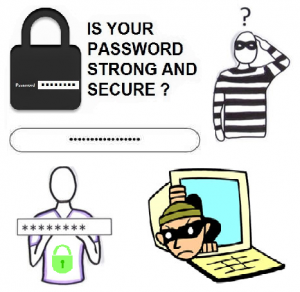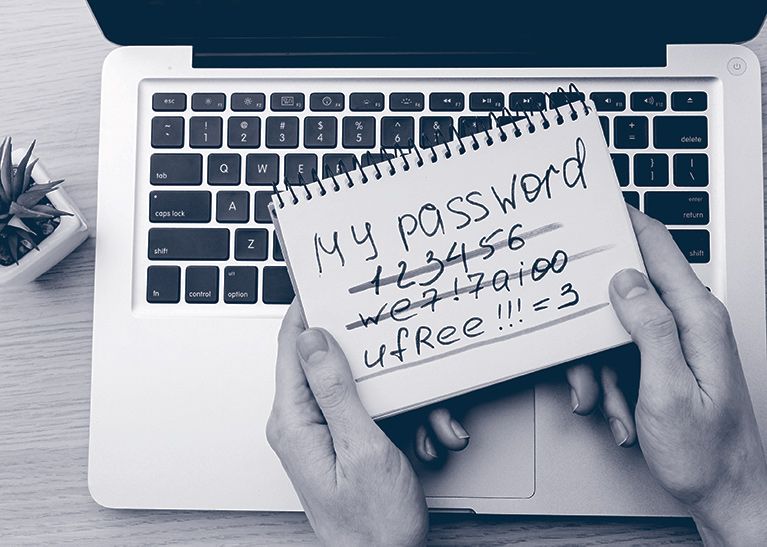How To Guide: Creating Strong And Secure Passwords

Signing up for new accounts can be a serious pain in the behind. You have to enter every single personal detail on an online form, and if that wasn’t enough – you also have to think of a password that no one else would be able to guess. Therefore, perhaps setting up a password is the hardest part – at least for majority of the people who go through the signing up process. What makes matters even worse, is the fact that sometimes the users are required to create passwords according to certain required standards, mainly for security reasons – I personally think this is a preposterous requirement under any circumstance. Think about it, what if you are required to create a password similar to the following format, for example: 56&O-4HU18-KC&^KSL. You better be a good memorizer – and chances are you may likely forget this password – unless you write it down somewhere. Thus, anyone required to meet such strict password setup requirements may simply give up on the whole signup process.
If you are like most people, chances are you are using a single password for all your accounts—this is in fact a grave mistake. Hackers already know that most people use same usernames and passwords for all their various accounts, and recently they have developed viruses to exploit this loophole. Thus, it is no longer safe to use single uniformed password and username for all your accounts. In this article, I will give out comprehensive tips on how you could protect your privacy and learn about best password protection strategies.

Password characters:
Part of setting up an effective password is related to its length. A password containing at least 8 characters would be ideal, although a password with 10 characters would be best. The more characters in your password, the longer it takes for hackers to crack your password.
Complex passwords:
Another effective method is to make sure that you add at least one special character with lower or upper case letters. In addition, if you can add numbers in your password – you’ve made a hacker’s job even more challenging.
Password phrasing:
Do you have a catchy song in your head? How about a famous quote you love? Well, you can use the first letters of the sentences in your song or quote as a useful method for creating and remembering a password. For example, take the following quote “Life is really simple, but we insist on making it complicated”. Using this quote’s first letters, you can create a password that should look something like this: lirsbwiomic.
Change your password regularly:
Just like changing your underwear is a necessary requirement, so does changing your passwords – except password don’t stink – they just become more venerable to hackers overtime. Though, one may wonder how often is often? Well, 6 months is a good time frame to keep using the same password, after that, you should change it.
Be aware of Shoulder Surfers:
Never type in your password when someone is right behind you – think should surfers. This is especially true if you are at the workplace or in a public location, such as a coffee shop, mall or some public gathering. You never know what that person’s intention might be – he or she could be a professional identity theft for all you know.
Encrypt files and Folders:
Using encryption to safeguard your personal files and folders is a must these days. Our computer hard-rives can contain extremely sensitive information about us, which, if it falls into the wrong hand – can seriously compromise your identity. Therefore, it is important that you encrypt all sensitive/personal data with encryption software.
Now, let’s discuss a list of password protection mistakes you should avoid, otherwise, following the above mentioned tips are useless.
Don’t write down your passwords:
Your passwords are meant to be secret; they are no longer secret if they are recorded in a piece of paper – regardless of how complicated or sophisticated passwords you set. Writing down your password on a piece of paper defeats its purpose. Often is the case when people write down their passwords in a notebook, or perhaps stick it somewhere using a post it note. If you have trouble remembering your passwords, make use of a password manager tool. Most of these tools are effective and safe to use for accessing practically all types of accounts – this way, you don’t have to remember all your passwords – though you really should have them memorized.
Don’t share your passwords with others:
By others, I mean your mother, wife, daughter, son, grandson, and certainly not your best friend. You may innocently tell your password to someone who you think you can trust – though it’s ok to trust your loved ones – telling to your password is not ok, as it can compromise your personal privacy.
Don’t send out passwords over email:
Despite what you may think, there are idiots out there who would actually send out their password via email. This is certainly a foolish mistake, as I have already highlighted the reason on the top. why you shouldn’t show or share your password with others.
Don’t use remember password feature:
You may be tempted to click “yes” when you receive the remember password prompt on top of your browser. One word of advice: don’t click on it. It is likely that other users may have access to your PC, when they visit the website, your password and username would be saved – allowing others to access your private data. Furthermore, things can become more complicated if you happen to lose your laptop in the case of a robbery. Your username and password can easily be accessed through the browser’s saved password database. Nearly all browsers save your password in an un-encrypted format, so it becomes a piece of cake for crooks to hack all your personal accounts.
Don’t login into accounts on an unfamiliar PC:
Today, there’s no need to login to someone else’s PC in order to check email or your bank balance. Nearly everyone now uses smart phones which act like handheld computers. However, there is a time when you don’t have a choice, and you simply have to check your email through an unfamiliar PC. Once again — don’t do it! Why? Well, it could be a trap. Someone could be running key logging software which can record everything you type – this includes your usernames and passwords.
Final Words:
I know I am asking you to be extremely over cautious, perhaps you could call me a little paranoid, but it is better to be safe than to be sorry.
